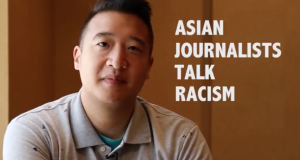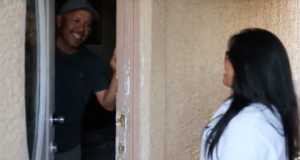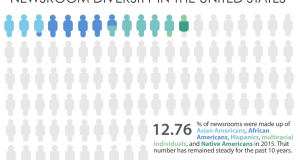The ongoing U.S. debate about accepting refugees could have long-term effects on foreign policy, experts say.
More than half the nation’s governors announced their opposition to allowing Syrian refugees to resettle in their states after the November terror attacks in Paris that killed at least 129 people. They cited safety concerns and doubts in the vetting process.
Michigan, home to the Detroit area’s large, diverse Arab population, is a hot spot in the debate.
Gov. Rick Snyder initially said he welcomed refugees to resettle in Michigan, but reversed his position after the Paris attacks.
Bing Goei, director of the Michigan Office for New Americans, said the governor’s position was “temporary,” adding that refugees would be welcome after security precautions are verified with the federal government.
“The governor is committed to refugee resettlement because he understands that each one of us brings value,” Goei said. “Our governor has not wavered from his commitment to welcome those who are being displaced by violence or persecution.”
The Obama administration has said state Legislatures don’t have the authority to block refugees. According to the White House, most resettlement programs are carried out through federal programs, and incoming refugees could travel freely in the country once accepted.
Former Maryland Gov. Martin O’Malley disagrees with Snyder. While running for the Democratic nomination for president in October, O’Malley met with refugees during a visit to Dearborn, Michigan, home to one of the largest concentrations of Arab Americans in the U.S.
Radhia Fakrildeen, of Dearborn Heights, Michigan, was among the eight refugees selected to meet O’Malley.
Fakrildeen said she left Iraq with her three children in 2014 through the International Organization for Migration, and received financial support for six months from the U.S. Committee for Refugees and Immigrants. Her husband was denied asylum for unspecified reasons and remains in Baghdad, she said.
“I have no job now,” Fakrildeen told O’Malley. “We come here to search for peace, security, and a nice future for my kids.”
Following the meeting, O’Malley told Arab American activists he was “disturbed” by anti- Muslim sentiment and fear, adding that U.S. policy should be more “compassionate.”
“The enduring symbol of America is not the barbed wire fence; it’s the Statue of Liberty,” he said. “If Germany – a country with a fourth of our population – can accept 800,000 refugees this year, surely we can accept 65,000.”
Michael Wahid Hanna, an adjunct senior fellow at the Center on Law and Security at New York University, said anti-Muslim comments made by some 2016 presidential contenders may interfere with U.S. foreign policy.
“It’s going to drive a lot of timidity,” Hanna said on a recent trip to Michigan. “That constrains how the United States can then respond (to the refugee crisis), particularly in a presidential election year.”
According to the U.N., among the 4.3 million Syrian refugees registered through assistance programs, 56 percent are under age 20. Only 2,300 have resettled in the U.S. since October 2011, according to U.N. numbers.
“If we want to be proactive, we can’t just ascribe to a kind of bigotry and demagogic ideological politics,” Hanna said. “There’s real fear that I think has to be addressed.”
Moustafa Assad, 48, has been in the U.S. since June and said he hasn’t been exposed to specific cases of xenophobia since then. Assad and his family fled Syria in 2012, and came to Michigan through a U.N. resettlement program in Turkey. He said he feels fortunate to be in the U.S.
“In Syria there was no life at all,” Assad said. “A person couldn’t guarantee his life for even one day.”
The Assad family lived in Idlib, a city in northwestern Syria known for its early role in the Syrian civil war and widespread opposition protests. A rebel campaign led by the Free Syrian Army initially captured Idlib in early 2012, until a government offensive recaptured lost territories in a major army operation, according to a 2012 CNN report.
“We couldn’t bring anything with us, not even our IDs,” Assad said. “We left as runaways along with 40 or 50 of us.”
Resettlement took 16 months and the cost of living in Turkey was high, Assad added. Noor Al Dabbagh, 30, recalls going through a similar process.
“It was difficult for all of us,” she said. “When you don’t have income, it is not easy.”
 VOICES Publishing from the AAJA National Convention
VOICES Publishing from the AAJA National Convention








